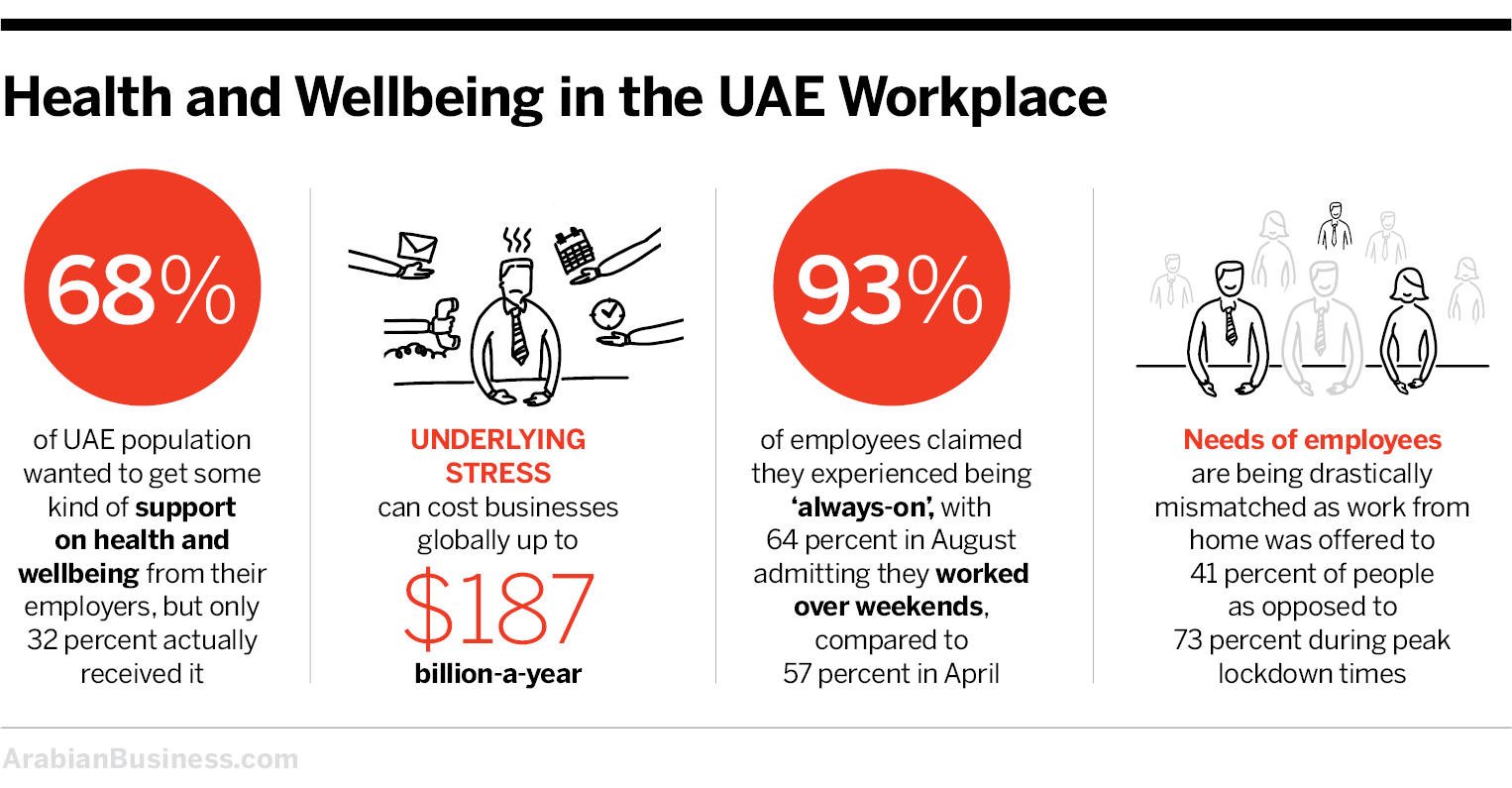
Mental health in the UAE: 'Post-crisis, everyone will remember how firms behaved'
A leading global health services company has claimed more must be done in the UAE to address mental health issues in the workforce.
Cigna typically carries out one annual health and wellbeing survey across various markets, but because of the current global coronavirus pandemic, this has been completed three times over the last seven months.
It revealed that 68 percent of the UAE population wanted to get some kind of support from their employers, but only 32 percent actually received it.
Jerome Droesch, CEO of Cigna MEA, told Arabian Business: “I think it’s probably even more important for companies who are facing difficult times and I think for us, what we always deliver as a message is, even if you are facing difficult times, there will be some better times moving forward, but in the meantime you still need to keep your values, to stand firm and make sure you treat fairly all of your team members and employees and family members.

“At the end of the day, when you exit the crisis, everyone will remember how you behaved in those tough times.”
According to the survey results, the needs of employees were drastically mismatched against measures put in by employers – work from home was offered to 41 percent of people as opposed to 73 percent during peak lockdown times.
While 93 percent of employees claimed they experienced being ‘always-on’, with 64 percent in August admitting they worked over weekends, compared to 57 percent in August, with the subsequent negative knock-on effect on personal lives and families.
“Definitely we see a trend where people are working more and more and even during the weekends as well, not only late evenings,” said Droesch.
The surveys from Cigna looked into the state of mental health among residents in UAE before and during Covid-19, which had the most dip seen during the severe lockdowns.
And although UAE residents reported feeling more connected due to technology, it was revealed that underlying stress can still cost businesses globally up to $187 billion-a-year.
Droesch said that while technology has definitely helped, keeping businesses as well as friends and family connected, particularly during the periods of lockdown, he emphasised the need to develop and happy medium between screen time and personal time.
Referring again to the ‘always-on’ issue, he said: “One of the main challenges we observed was the side-effect of this highly connected world, the always-on culture. We’ve seen people using technology a lot during this period because that was the only way to get things done and to be connected with people because the social interaction had disappeared.
“The negative consequences of that is that people were always connected, from the first time when you wake up in the morning until you go to sleep; even during the weekend as well. People were always connected and they were always under pressure, not only from an email perspective, but doing jobs and activities all along the way.”











